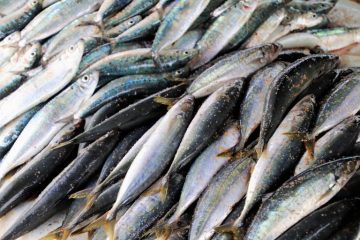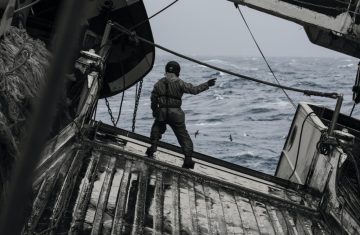Climate change will have an adverse impact on trophic amplification in marine food webs
Climate-driven changes in ocean environmental conditions — ocean warming, deoxygenation and acidification — are projected to affect the physiological functions of marine organisms, their geographic distributions, biological life cycles and total biomass.
Fish buffered from recent marine heatwaves, showing there’s still time to act on climate change
Fish were surprisingly resilient to marine heatwaves before 2019, highlighting the need to keep seas from warming further, according to new research.
IOF meets with U.S. Consulate General Vancouver
On August 25, 2023, members of the IOF community met with a delegation from the U.S. Consulate General Vancouver.
IOF professors head to United Nations Ocean Conference
Dr. William Cheung & Dr. Rashid Sumaila are off to Portugal for the United Nations Ocean Conference (UNOC), being held June 27 to July 1. Will participate in special side event: Fisheries Management as Climate Action, on June 26.
Nearly half of countries’ shared fish stocks are on the move due to climate change, prompting dispute concerns
The study tracked the shifting ranges of 9,132 transboundary fish stocks, which account for 80 per cent of catch taken from the world’s EEZs, starting in 2006 and projecting to the year 2100.
Massive “ensemble” climate modelling study includes work of multiple IOF researchers
The project used nine different computer models, created by different teams around the world, to illustrate with greater clarity and range how ocean life will be impacted by Earth’s warming climate.
Coral reefs are 50% less able to provide food, jobs, and climate protection than in 1950s, putting millions at risk
Global coverage of living corals had declined by about half since the 1950s and consequently, the diversity of species had also declined, by more than 60%.
Climate change creates ‘double jeopardy’ for fish-dependent countries, finds first study of its kind
A new study highlights the importance of collective action to boost resilience across all aquatic food systems to stave off the worst effects of climate change.


